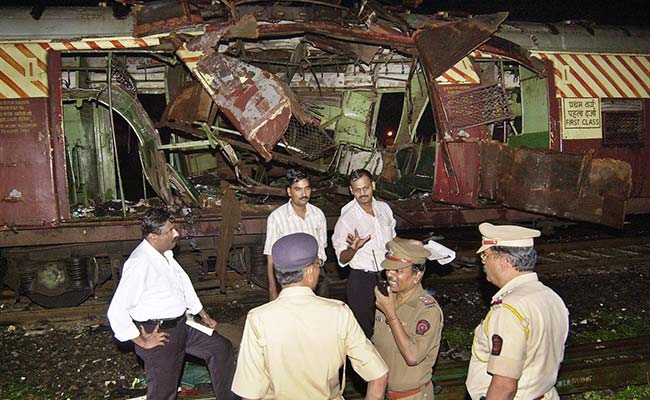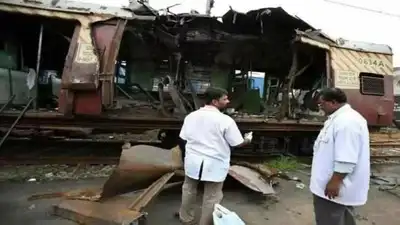On July 21, 2025, the Bombay High Court overturned sentences in the 2006 Mumbai train blasts case, acquitting all 12 individuals. Learn about the court’s reasoning, evidence gaps, and implications for justice reform.

Bombay High Court Acquits 12 Convicts in 2006 Mumbai Train Blasts
On July 21, 2025, the Bombay High Court delivered a pivotal verdict in the 2006 Mumbai train blasts case, acquitting all 12 individuals previously convicted, including five who were on death row and seven serving life sentences. Nineteen years after the July 11, 2006 serial bombings that killed approximately 189 commuters and injured hundreds more, justice has taken a transformative turn.
Court Faults Prosecution—Finds “Very Abnormal” Flaws
The three‑judge Bench, led by Justices Anil Kilor and S.C. Chandak, unequivocally stated that the prosecution had “utterly failed to prove the case” . Labeling significant aspects of the investigation as “very abnormal,” the court raised red flags over:
- Unreliable witness testimony: IDs conducted months after blasts lacked credibility.
- Experimental evidence handling: Bomb remnants—pressure cookers, circuit parts, explosive traces—were deemed disconnected from the blasts themselves.
- Forced confessions: Allegations that confessions were extracted under duress after invoking MCOCA.
These observations led the court to overturn the 2015 special MCOCA trial court findings—a move hailed as a strong rebuke of investigative lapses.
Reversal of Death Penalties & Immediate Release
In its landmark decision, the High Court:
- Set aside the death sentences of five convicts.
- Overturned life imprisonment for seven others.
- Ordered their release, provided they’re not involved in other cases.
This reversal represents one of India’s most significant boosts to procedural justice in terrorism trials—sending a message that conviction must rest on rock-solid proof.
A Case Marred by Investigative and Legal Shortcomings
The court’s judgment criticized multiple areas of prosecutorial failure:
- Weak TIPs (Test Identification Parades): Conducted months later, raising doubts about reliability.
- Torture allegations: Confessions were deemed inadmissible if obtained under duress
- Circumstantial disconnect: No clear link between seized explosive materials and the actual blasts.
The court remarked that the prosecution’s case was “very abnormal,” casting deep doubt on the integrity of the evidence.
Survivors and relatives of the 189 who died—and the over 800 injured—have been left grappling with mixed feelings:
- Relief for the accused: After nearly two decades behind bars, their acquittal brings a long-awaited end.
- Frustrations among victims’ families: Questions now emerge over the delayed justice and accountability.
- Public trust at stake: The verdict amplifies concerns over evidence collection, confessions, and investigative reliability in terror cases.
Larger Implications for the Justice System
This ruling has reverberated beyond the courtroom:
- A caution for investigative agencies: Mishandled evidence and coerced confessions can undo years of pending convictions.
- Judicial checks reaffirmed: The High Court’s critical scrutiny underscores the judiciary’s role in safeguarding fair trials—even in terrorism cases.
- Systemic reform calls: Legal experts argue for stronger oversight, transparency, and respect for due process to prevent future miscarriages of justice.
Timeline Recap of the Case
- July 11, 2006: Coordinated pressure-cooker bombs hit seven Western Line trains during peak evening commute, killing ~189 and injuring hundreds.
- November 2006: ATS files charge sheet under MCOCA and UAPA.
- September 30, 2015: Special MCOCA court convicts 12—five to death, seven to life; one acquitted.
- 2015–2025: Appeals heard; over 75 sittings across six months.
- July 21, 2025: Bombay High Court acquits all 12, citing lack of proof.
What Comes Next? Seeking Accountability and Clarity
The verdict opens critical next steps:
- Investigative follow-up: Will agencies appeal to the Supreme Court? Or will they rebuild their case?
- Policy level dialogue: Time to examine evidence handling, TIP credibility, witness integrity, and confession admissibility standards.
- Counseling for victims: Long-smothered grief and trauma demand renewed support and compensation efforts.
The Bombay High Court’s July 21, 2025, judgement marks a turning point in India’s fight for justice—not just against terrorism, but in preserving procedural integrity. While the acquittal offers closure to the accused, it also reignites debates on evidence standards, transparency, and victim redressal. Ultimately, this landmark verdict could catalyze change—for better forensic practices, stronger rights protections, and a more resilient legal system.
READ ALSO……Andhra Pradesh CID Alleges Rs 3,500 Crore Liquor Scam Involving Former CM Y.S. Jagan Mohan Reddy















 Categories
Categories









